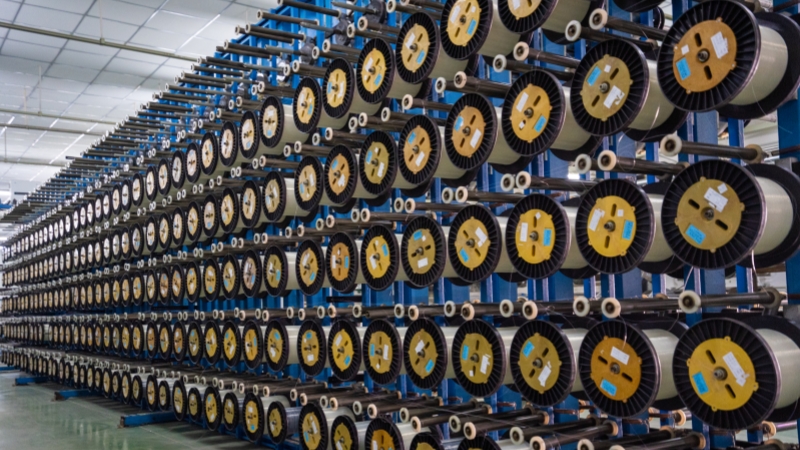The twisting and folded twisting of filter press fabrics are key processes in yarn manufacturing. Twisting primarily applies to multi-filament yarns. The twisting process includes initial twisting and folded twisting. This article will distinguish the objectives, operation targets, and product performance of initial twisting and folded twisting processes.
The initial twisting process involves twisting long filaments to create a tightly structured yarn that is resistant to lateral breakage, improving processing performance.
Target: Single long filaments or individual yarns.
Effect: Reduces breakage and pilling during subsequent weaving, enhances the smoothness of the yarn surface, and improves abrasion resistance.
Key Indicators: The tightness of the fibers is controlled by adjusting the twist (the number of twists per unit length), with common indicators including twist degree and twist angle.

Folded twisting involves twisting multiple individual yarns into a strand, making the yarn structure more uniform, increasing strength, and reducing the rate of uneven strength.
Target: Multiple individual yarns or initially twisted yarns.
Effect: Improves the structural stability, durability, and compressive resistance of the strand, making it suitable for filter fabrics that require high precision and wear resistance.
Initial twisting provides the foundation for folded twisting, ensuring a tighter bond between the yarns during folded twisting by optimizing the single yarn structure. Folded twisting enhances the overall performance of the yarn. Both processes work together to ensure the filter fabric has high strength, low deformation, and long lifespan.
Post-Treatment: Twisted yarns need to undergo additional processes such as high-temperature setting and calendaring to stabilize the dimensions and optimize surface characteristics. Through the coordination of these processes, the filter fabric meets industrial application requirements in key indicators such as abrasion resistance, compressive strength, and filtration efficiency.
Bolian's filter materials strictly adhere to production process standards, implementing meticulous control and rigorous testing at every stage of production. All products comply with the ISO 9001 quality management system requirements, ensuring that each batch of filter cloth meets high-quality standards and fulfills industrial application needs.